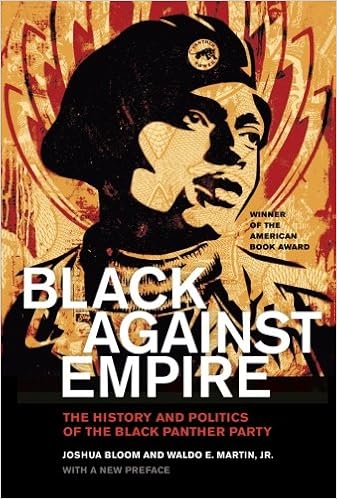
I was in my early teens during the hey-day of the Black Panther Party, and my impressions of the Black Panthers were filtered through the conservative world view of my parents and local media. However, after reading Black Against Empire, I realized that everything I thought I knew about the Black Panthers was wrong. This text is Exhibit A in demonstrating the need for a Black History Month.
Black Against Empire is a thorough and exhaustively researched history of the Black Panther Party. It is an engrossing read despite its scholarly nature. The authors deserve praise for writing in such a clear, readable style, and avoiding the use of jargon. I highly recommend this book for *all* audiences because it serves as a much needed balance to the prevailing negative view of the Black Panthers.
In order to provide this balance, the authors had to present a sympathetic view of the Black Panthers. The authors manage to do so while still maintaining a balanced perspective in their own text. In no sense were the authors cheerleaders for the Black Panthers. "Here are the facts, the whole story," they seem to be saying; "make up your own mind about the Black Panthers now that you have a more complete set of facts."
It is indisputable that violence was associated with the Black Panthers. However, as the authors demonstrate, much of the violence was instigated by the police or infiltrators through the FBI's notorious COINTELPRO program. The full name originally adopted by the group was the Black Panther Party for Self-Defense. Even though the Black Panthers' rhetoric called for violent insurrection against the government, they did little to follow through on this rhetoric. In fact, the Party's demise was in part due to its leaders' reticence to initiate a program of guerilla warfare.
Instead, the Black Panthers focused their earliest community organizing efforts on public service programs such as providing free breakfast for children, opening schools, distributing clothing and shoes, and offering bus service to prisons so that families could visit their incarcerated relatives.
In sum, the Black Panthers demonstrated how to become ungovernable. In this age of resistance to President Trump and his reactionary agenda, the Black Panthers present lessons of ungovernability from which we can learn. We also can learn from the mistakes the Black Panthers made so that our contemporary efforts to become ungovernable are more successful and are not consumed by the violence associated with the Black Panthers.
No comments:
Post a Comment